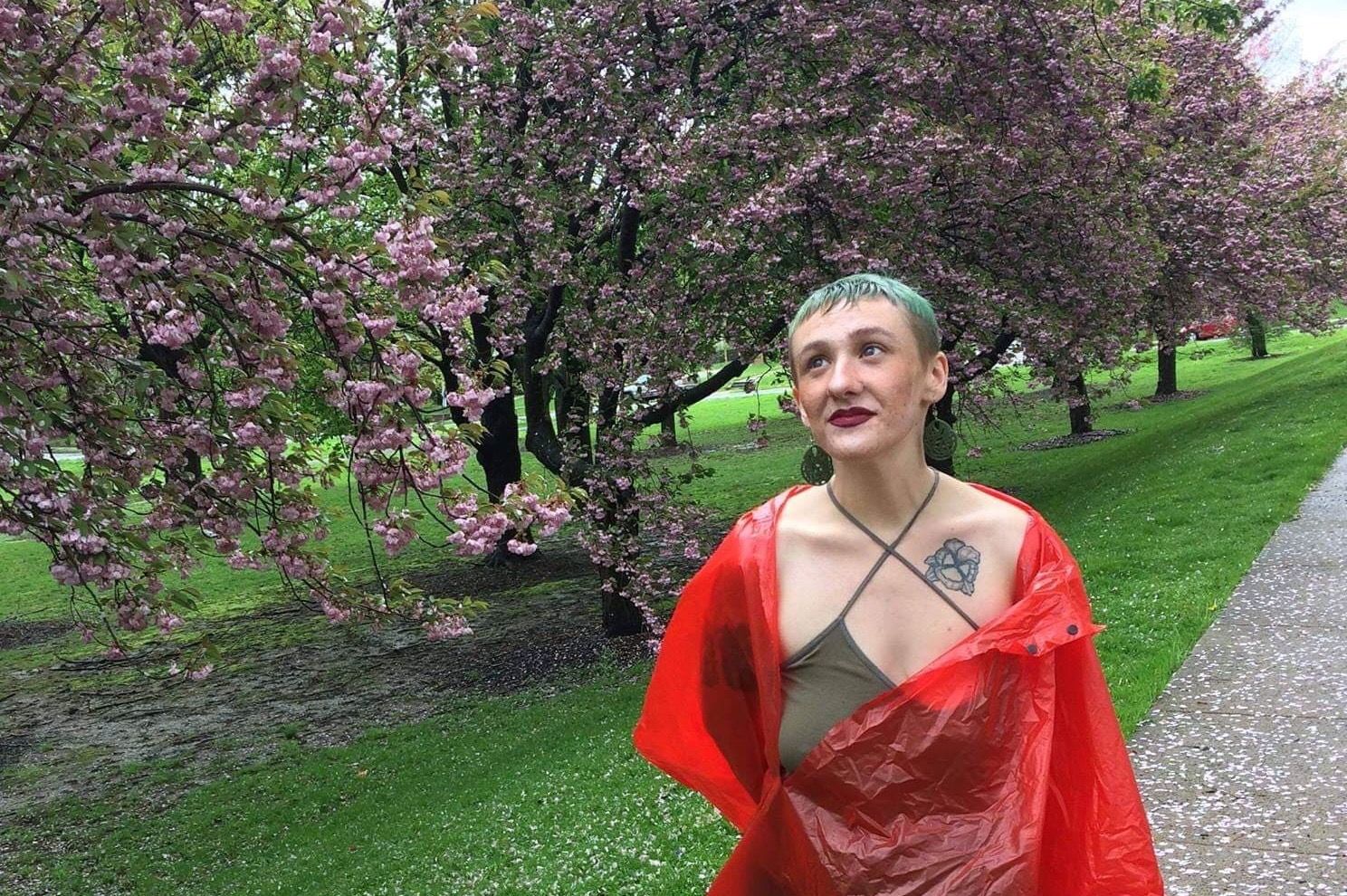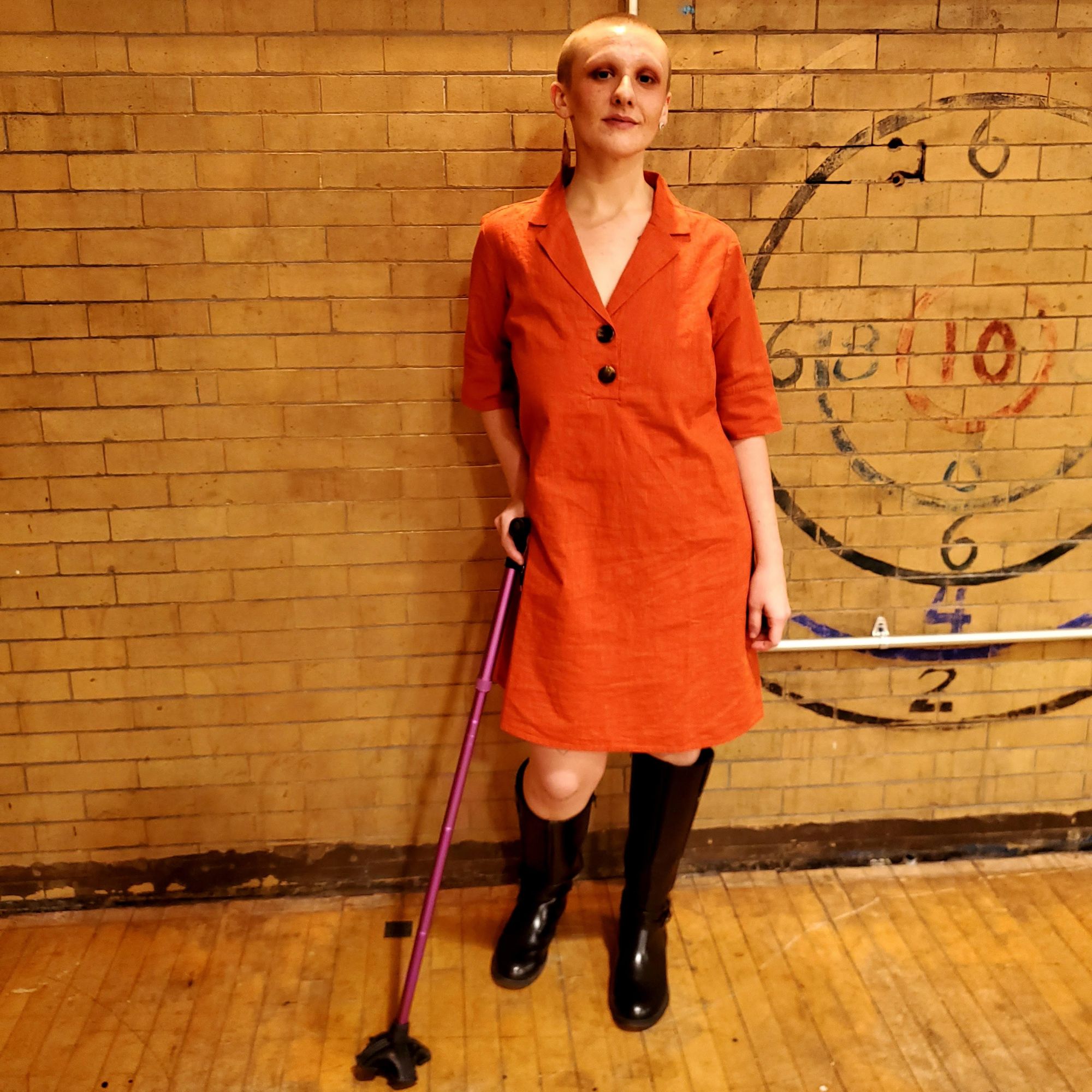Artist 7D Is Working to Expand Access to Pittsburgh Music

Music scenes are often defined by their inaccessibility. Consider the whisper networks sometimes required to find the venue’s address, the late hours that push against people’s circadian rhythms, and aesthetics that challenge mainstream concepts of sound and performance.
But what happens when that inaccessibility abuts another kind of inaccessibility—that which impedes people with physical or mental disabilities, chronic pain/illness, mental illness, or neurodiversity?
As my own body accustoms itself to living with a constellation of degenerative joint and auto-immune diseases, I have repeatedly encountered the structural impediments inherent in my own access to the scenes in which I have existed as a performer, DJ, promoter, and attendee. I was thus excited (and a bit surprised) to find solidarity in a Google form, a survey titled Accessibility in PGH Music.
The survey was created this past January by 7D, a Pittsburgh-based artist creating performance-focused experimental music. 7D’s performances often combine discordant soundscapes with vocals processed through long reverbs and delays, building a delicate sonic world on the precipice between lush and harrowing. Through this, they create space to explore the fluidity of ability, their personal experiences with psychosis and the healthcare system, and how these things relate to deconstructing what is expected from music.
The survey has since completed, and 7D is currently analyzing results in advance of a community meeting. I was able to reach out via e-mail and have a conversation about inspiration for the project, initial thoughts, and recommendations that venues and promoters can consider while the community organizes.
I’d love to hear about the genesis of the “Accessibility in PGH Music” survey. What kinds of experiences and conversations laid the groundwork for it? What was the moment in which you felt inspired to create and begin distributing the survey?
I am disabled, so accessibility determines the outcome of pretty much everything I do. I am a musician-performer-artist, and I book shows. I’m often caught in this intersection of symptom management, creating and performing, and feeling like a valued community member. When I moved to Pittsburgh a few years ago, I was homeless, had just tapered off all these medications I’d been on for seven years, left an intensive physical therapy program to regain some mobility and dexterity, and was quite traumatized from years of mistreatment from doctors and caretakers.
I really wanted a fresh start, so I was trying to convince everyone around me that I was not disabled. I was so sure that it would negatively affect my access to opportunities for growth as a musician and creator if I were to ask for accommodations or display symptoms. But of course, attempting this only made things worse for me, and no one really bought it anyway. I reached a point where I gave up trying to suppress my experiences, and I started being open about how much my disabilities influence the things I create and my participation in the community. Friends and strangers who are also disabled told me about their similar experiences.
Accessibility is so vast and complex, but there are many ways to navigate it. I just think a lot of organizers don’t know their options because these issues might not affect them personally and disabled people are a historically silenced group. And, of course, there are people who just don’t care. I am a bit more in control of my health issues than I once was, and I consider this a gift and an opportunity to do something to help those of varying disability experiences.
How have people been responding to the existence of the survey? Have you received any hostility from institutional actors (i.e., venues or promoters) who might find themselves inculpated by the results?
I was surprised, but really thankful, that people were willing to take the survey and share it with people at all. In the past, when I’ve brought up issues of accessibility, the response from most people was a “Oh. Yeah…”
Disability justice relates to all forms of oppression and identity (race, class, gender, sexuality, citizenship, incarceration, size, etc.). There are a lot of people in Pittsburgh who genuinely care about dismantling systems of oppression. But disabled people are often forgotten. They forget that we want to make art, play music, and attend shows. Many abled people are not used to disabled people being around them. But it also makes me wonder if there is more performative allyship happening than we like to remember. I don’t consider that a hopeless situation, but one that needs improved.
I wouldn’t say that anyone has been outright hostile in regards to the survey, just ignorance that isn’t malevolent. Accessibility is often called “a movement against business owners,” so I wouldn’t be surprised if I received hostility or intimidation at some point. If this happens, I’d say it will be when I begin reaching out to venues with the information gathered and suggestions for improving the issues. Another reason why having multiple people pushing for better accessibility is key! Some organizations and venues have reached out to me, and I’ve been consulting with them about how to improve the accessibility of their spaces and events. That has been really great.

As you’ve been analyzing the survey responses in advance of the meeting, what themes have emerged? What from the responses has surprised you?
That there are way more people negatively effected by a lack of accessibility at venues and art spaces than I think we all realize. That disabled people are conditioned to not ask for help; we are told we are a nuisance or “taking away from the art.” That there are a lot of misconceptions about accessibility. I notice that there is this idea that disabled people don’t come to shows because they have no interest in it. Meanwhile, the survey has received many responses from people with varying types of disabilities indicating that they would go to shows more if there were accommodations as simple as chair availability and knowing who they can ask for help. I think the misconceptions some people hold about what accessibility will mean for Pittsburgh music have been more surprising than the ableism itself. But I think this information is also valuable because it gives us a better idea of what we need to learn.
While a lot of the conversation in the past few years has largely been about the physical accessibility of buildings for people with mobility issues, your survey is careful to expand its definition of accessibility to considering people with chronic pain/illness, mental illness, and neurodiversity. What unique challenges do people have accessing underground music scenes from within those frameworks? Why do you think those challenges haven’t received the same consideration?
The thing is, we are still so far behind in accessibility for physical disabilities, though I think this is what comes to mind first. Accommodations for people with non-physical disabilities can be quite diverse. We need to remember that ability is fluid. I’d love to see more venues starting the conversation, asking people what is needed. A big obstacle for people with chronic pain/illness, mental illness, and neurodiversity is believing that their needs are not important. Music is not in any way as urgent a need for disabled people as food, housing, access to healthcare, etc., but I believe greater access is achievable in Pittsburgh’s music community.
Based on what you’ve initially read and experienced, what advice would you give venues and promoters who might be looking to make their spaces and events more accessible starting today? In a broader sense, what are some next steps toward making Pittsburgh music scenes more accessible?
Having a baseline of accommodations to meet common needs (this also establishes a sense of relief, people may feel more comfortable asking for help). Asking people what is needed. Maybe create your own survey or provide a notebook for people to write suggestions in. By far, the easiest thing that any venue can do is make it clear who is running the event and can be called upon for help if needed. Provide seating. Make your venue clean and clear of clutter—bathrooms should have a clear path. There should be non-alcoholic beverages available. Is anyone in decent financial standing willing to pay for someone’s entry that cannot? Maybe start a “pay it forward” ticket system. As an ally, is there an opportunity to perform or lead that you could give to someone with a disability? Are you recommending disabled artists to your friends? Read up on accessible digital design and try this out in your promotional art. Have a designated quiet/chill out space and put some art supplies in there (collage supplies are pretty successful, in my experience) so people have a distraction to help them calm down. If your venue is not wheelchair accessible, state that. Can anyone be available to help someone with a mobility device down stairs if needed, even at a house show? Let it be known that help can be provided. My hopes are that this survey and open meeting will be a good starting point and we will learn together what we already have the ability to change.
For updates about Accessibility in PGH Music, as well as upcoming performances, follow 7D on Facebook and Instagram. For more of 7D’s music, find them on YouTube.
Update 7/13/2020: 7D now has a virtual zine dedicated to disability justice, which you can follow at We All Know the Snuggle Man.
